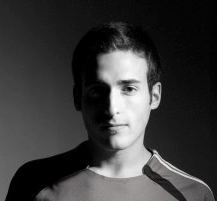 There was a time, a few months back, when I was ready to give up on the whole customer service industry. I was starting to loose faith in the ability of the Customer Service Representative (CSR) to actually help the customers. I was tired of CSRs telling me they didn’t have stock (when they didn’t check), talking on their phone (instead of helping the next person in line) and never being around when you need them.
There was a time, a few months back, when I was ready to give up on the whole customer service industry. I was starting to loose faith in the ability of the Customer Service Representative (CSR) to actually help the customers. I was tired of CSRs telling me they didn’t have stock (when they didn’t check), talking on their phone (instead of helping the next person in line) and never being around when you need them.I started to think, as we move forward into the 21st century, companies (in the sales industry) are working toward becoming more efficient about how they run their business. The first place management often looks to improve is their front lines. These are the people who orchestrate their sales and often spend most of the time doing nothing.
Therefore, to achieve the highest possible number of sales, why not eliminate the CSR altogether? Turn the whole CSR industry into something that no longer requires a middleman – get rid of the people.
The way I see it, I know exactly what I am looking for. The real question I need to ask myself is, “Where is it?” For example, last week I went shopping for a book at my local bookstore. Of course, since it was the week before Christmas, the whole store was filled with people. I began looking for an available kiosk to search for my book, and to my dismay they were all full. I walked back and forth waiting for one of the three I was hovering around to open up when a young CSR asked if she could help me out.
Something inside of me wanted to tell her no, but I was in no mood to refuse a helping hand. I didn’t think she would know what book I was looking for (she didn’t), but what she did know was invaluable – she knew where the unused computers were. I followed her through the twists and turns of the aisles and eventually we came to a quiet little corner where an open kiosk awaited our arrival. It didn’t take her long to type in the book I was looking for, and before I knew it I was out the door with book in-hand.
As I left the store I thought – I could have done that. There isn’t any special mystery behind finding where a book is on a computer. What I realized was, this young CSR, who was willing to help, had something I didn’t, the added knowledge about the store.
 I overlooked the fact that not everyone is capable of guiding him or herself through a retail outlet. There is a whole set of people who require the “expertise” of a CSR to purchase what they are looking for. I love to use the Apple Store as a perfect example. This is a store that truly understands the power of good customer service. You walk in and the number of employees is almost equal to that of the number of customers. Someone is always available to help you. When you purchase something, all they do is bring up the items online and scroll you through their stock. Is this something you could do on your own? Of course. Is everyone capable of ordering stock online? Of course not. With a ratio of almost 1:1 customers are in and out in record time – completely satisfied.
I overlooked the fact that not everyone is capable of guiding him or herself through a retail outlet. There is a whole set of people who require the “expertise” of a CSR to purchase what they are looking for. I love to use the Apple Store as a perfect example. This is a store that truly understands the power of good customer service. You walk in and the number of employees is almost equal to that of the number of customers. Someone is always available to help you. When you purchase something, all they do is bring up the items online and scroll you through their stock. Is this something you could do on your own? Of course. Is everyone capable of ordering stock online? Of course not. With a ratio of almost 1:1 customers are in and out in record time – completely satisfied.For the time being, I suppose CSRs still serve a purpose. The next question is, how do we keep them performing at a high level to ensure customer satisfaction? When customers can’t help themselves, they need to be willing to go to the next level to ensure satisfaction. Whether or not this is possible, is a whole other post altogether.









